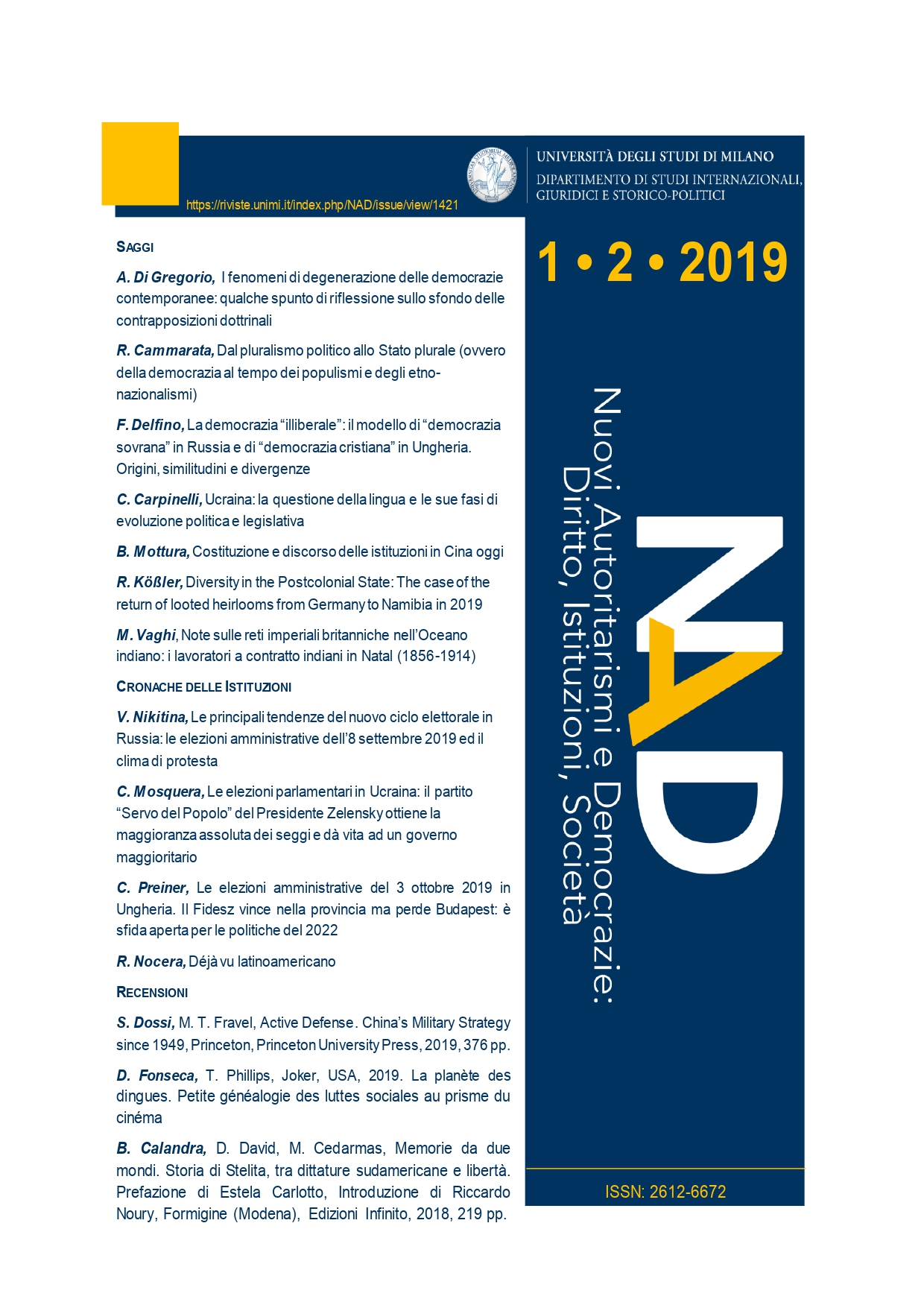Note sulle reti imperiali britanniche nell’Oceano indiano: i lavoratori a contratto indiani in Natal (1856-1914)
DOI:
https://doi.org/10.13130/2612-6672/12547Parole chiave:
British Empire, India, Natal, immigration, indentured labourAbstract
In the second half of the nineteenth century, within the British colonial empire, the migrations of Indian workers were caused more by economic needs linked to the initiatives and private interests, rather than by a choice of London, connected to the dynamics of imperial networks: these economic migrations have undergone a significant change with the abolition of slavery and the beginning of the practice of indentured labour. In this regard, between the nineteenth and twentieth centuries, the conditions of Indian coolies in Natal did not improve and the British and Indian governments were unable to influence the discriminatory policy implemented by the colony. In particular, London had not wanted (or could) intervene with the necessary force against the South African elites neither in the 1870s – when resumed a large immigration from India to Natal –, nor after the birth of the Union of South Africa (1910), when the colonial directives about conditions of the Indians could easily be evaded and not applied by the local government, by now de facto independent.










